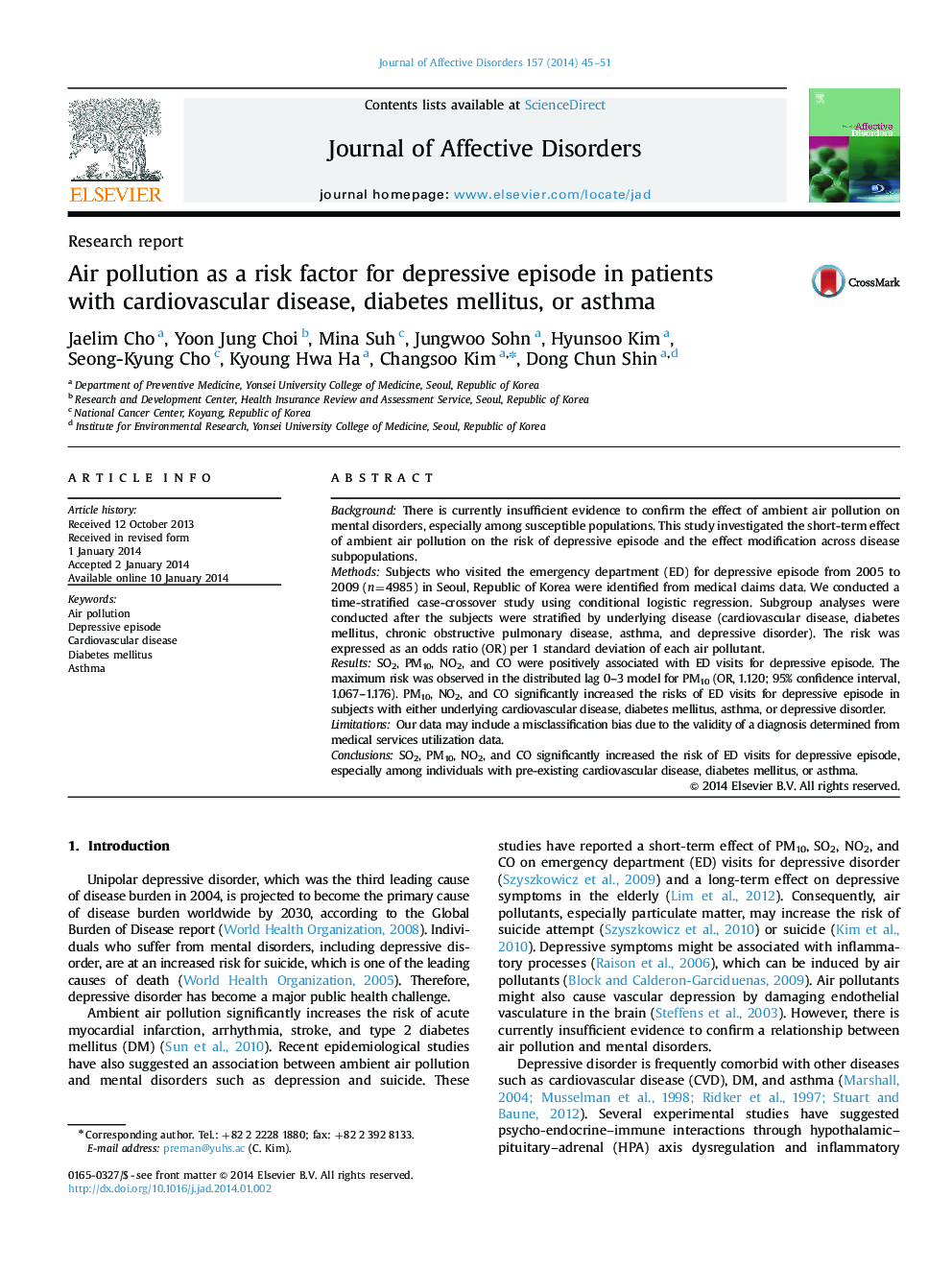| Article ID | Journal | Published Year | Pages | File Type |
|---|---|---|---|---|
| 4186050 | Journal of Affective Disorders | 2014 | 7 Pages |
BackgroundThere is currently insufficient evidence to confirm the effect of ambient air pollution on mental disorders, especially among susceptible populations. This study investigated the short-term effect of ambient air pollution on the risk of depressive episode and the effect modification across disease subpopulations.MethodsSubjects who visited the emergency department (ED) for depressive episode from 2005 to 2009 (n=4985) in Seoul, Republic of Korea were identified from medical claims data. We conducted a time-stratified case-crossover study using conditional logistic regression. Subgroup analyses were conducted after the subjects were stratified by underlying disease (cardiovascular disease, diabetes mellitus, chronic obstructive pulmonary disease, asthma, and depressive disorder). The risk was expressed as an odds ratio (OR) per 1 standard deviation of each air pollutant.ResultsSO2, PM10, NO2, and CO were positively associated with ED visits for depressive episode. The maximum risk was observed in the distributed lag 0–3 model for PM10 (OR, 1.120; 95% confidence interval, 1.067–1.176). PM10, NO2, and CO significantly increased the risks of ED visits for depressive episode in subjects with either underlying cardiovascular disease, diabetes mellitus, asthma, or depressive disorder.LimitationsOur data may include a misclassification bias due to the validity of a diagnosis determined from medical services utilization data.ConclusionsSO2, PM10, NO2, and CO significantly increased the risk of ED visits for depressive episode, especially among individuals with pre-existing cardiovascular disease, diabetes mellitus, or asthma.
